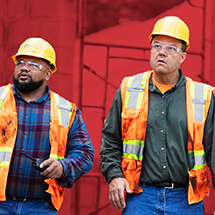-
Job Seekers
X
Job Seekers
Whether you're looking for a temp job or a permanent career, Labor Finders has you covered!
-
Explore
- How it works
- Industries
- Blog
- Locations
- Job Search
You May Also Be Interested In

2025 Employee of the Year
Learn more about our amazing Employee of the Year
-
-
Employers
X
Employers
Let us help you find the workers you need, when you need them.
You May Also Be Interested In
-
Industries
X
Employer Industries
Ready to staff your next project? Our staffing experts has the knowledge and the workers to cater to your unique staffing needs.
In this Section:
Job Seeker Industries
From construction to waste management, we have job openings in whatever industry you’re interested in.
In this Section:
-
About
X
About You
Getting matched to the right job, gaining the flexibility you want, making an impact in your community - at Labor Finders, it’s all about you!
-
You may also be interested in
- About Us
- Job Search Results
- Find an Office
- How it works
- Blog
About Us
With almost 200 offices nationwide, we’ve been putting people back to work for over 40 years. See why we’re a leader in the blue-collar staffing industry.
-
You may also be interested in
- About Us
- Media Center
- Video Library
- Leadership Team
- Careers
- In The Community
- History
-
- Location
Employment Readiness
How to Become a Finish Carpenter

Finish carpenters are experts in the last phase of construction—installing trim, cabinetry, molding, and flooring that give homes and buildings their polished, finished look. Unlike rough carpenters who frame the structure, finish carpenters handle the precision work that requires a sharp eye and a steady hand. To start a career in finish carpentry, you’ll typically complete a 3–4 year apprenticeship program that combines classroom instruction with on-the-job training. Once trained, you can find work through construction companies or local staffing agencies that connect certified carpenters with short- and long-term projects in your area.
Are you thinking about becoming a finish carpenter? Here’s everything you need to know.
What is a Finish Carpenter?
When we think of carpenters, we think of those construction workers who build the wooden frame of a house or a building. Finish carpenters, on the other hand, start work when the project is almost complete. Carpenters install or refinish cabinets, crown molding, built-in furniture, and flooring.
What Does a Finish Carpenter Do?
Finish carpenters work on the decorative and finishing aspects of a construction project, such as:
Trim
Finish carpenters work on the beautiful molding you find around windows, doors, baseboards, mantels, and along walls. They cut, fit, and then install the wooden material according to specific measurements. Finish carpenters make sure that corners are crisp, joints are tight, and moldings are level.
Cabinets
Whether they’re custom or pre-fabricated, finish carpenters are called on to install cabinets in designated spaces. That includes measuring and cutting wood for bases, pedestals, shelves, tops, and drawers. Once assembled, they make sure these cabinets are put in and finished to perfection.
Wood Flooring
Another way finish carpenters add the final decorative touches to a construction project is by creating and installing custom flooring. Just like molding, they use their skills to measure, fit, and lay the flooring down. Once it's in, they may even stain and varnish it.
The Finish Carpenter Work Life
Finish carpenter work can vary depending on the project, from working inside a house to redoing the floors of an office building. No matter the environment, you can expect the work site to be noisy due to heavy machinery like saws, hammers, and screw guns. It can also be very dusty thanks to all the wood being cut. Many finish carpenters work full-time schedules, but those schedules vary by project.
Why Use a Staffing Agency to Become a Finish Carpenter?
Working with a staffing agency with contacts in the construction industry can get your foot in the finish carpentry industry. They work with construction clients in your city who are already looking for finish carpenters, shortening your time to get a job. You can gain experience with steady temporary assignments if you've just finished your apprenticeship. If you need a flexible work schedule or are ready to leap into a permanent full-time position as a finish carpenter, a staffing agency can help you get there.
The Finish Carpenter Work Life
Finish carpenter work can vary depending on the project, from working inside a house to redoing the floors of an office building. No matter the environment, you can expect the work site to be noisy due to heavy machinery like saws, hammers, and screw guns. It can also be very dusty thanks to all the wood being cut. Many finish carpenters work full-time schedules, but those schedules vary by project.
Why Use a Staffing Agency to Become a Finish Carpenter?
Working with a staffing agency with contacts in the construction industry can get your foot in the finish carpentry career. They work with construction clients in your city who are already looking for finish carpenters, shortening your time to get a job. You can gain experience with a steady stream of temporary assignments if you've just finished your apprenticeship. If you need a flexible work schedule or are ready to leap into a permanent full-time position as a finish carpenter, a staffing agency can help you get there.
Finish Carpenter Work Requirements
Your finish carpentry career starts with an apprenticeship program lasting 3 to 4 years. As an apprentice, you’ll complete 144 hours of technical training where you learn the basics of carpentry, math, blueprint reading, safety, and building codes. You may also get training in specialized work like rigging, setting concrete forms, and welding. The program requires 2,000 hours of paid on-the-job training as well. Once complete, you must pass OSHA's 10-and-30 30-hour safety courses and meet any other requirements your home state may have.
Aside from completing an apprenticeship program, you’ll need other skills to be a successful finish carpenter. One of those skills is a keen attention to detail. Much work requires accurate measurements, precise cuts, and flawless installation. A basic understanding of math is also essential for measuring their project materials. Being a good problem-solver is handy when a project doesn’t go according to plan. Using standard finish carpentry tools like hammers, electric drills, circular saws, and screw guns requires good hand-eye coordination. You should be in excellent physical health to handle all the lifting, standing, climbing, and bending that come with the job.













